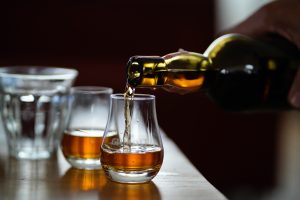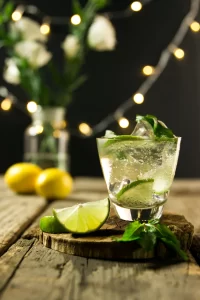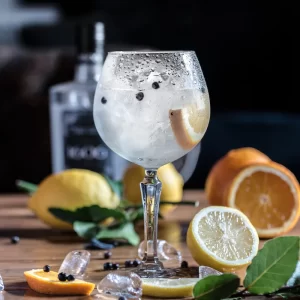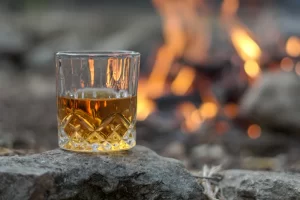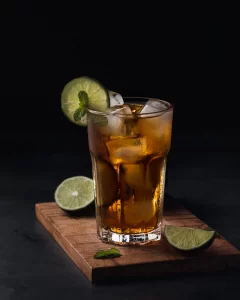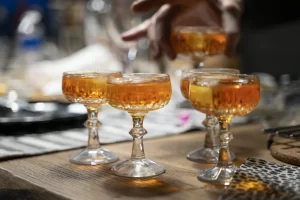Maryland Liquor Laws And Regulations
Read this to find out everything you need to know about the liquor laws and regulations in Maryland. This includes the laws regarding the sale and purchase of alcohol, licensing requirements, and the laws surrounding distilleries.
Maryland’s Liquor Laws And Requirements For Selling Alcohol
Anyone over the age of 18 is allowed to sell wines and beers when serving as bartenders. However, to sell spirits, a bartender must be 21 or older. It is illegal for anyone in Maryland to sell alcohol to anyone, adults included, under the age of 21.
Anyone who is found to violate this law can expect a fine anywhere between $1,000–$2,500.
While there are few regulations on alcohol sales, it is prohibited for wine and beer to be sold in grocery stores.
With that being said, it is crucial to point out that localities and counties all have different rules and regulations to follow. This will determine places where beers, wines, and spirits can be sold, and even when.
A great example of this is the prohibition of selling any alcohol on Sundays in counties like Garrett and Baltimore. Other counties may permit the sale of alcohol on Sundays, but only at specific times of day.
Counties like Worcester, Somerset, and Wicomico recently got monopoly on the sales of spirits for off premise use. This is due to the fact that private stores (except for groceries) can now apply for the license to sell spirits.
Maryland’s Liquor Laws And Requirements For Buying Alcohol
In Maryland, and in fact the majority (if not all) states, it is illegal for anyone under the age of 21 to purchase or even attempt to purchase alcohol. Not only that, but possessing an ID which falsely represents your age is also prohibited.
However, these actions are civil rather than criminal cases. As such, you will not be arrested for them, but you will get a citation for it. Because of this, being guilty of these will not go on a criminal record.
Recently, Maryland reduced open alcohol container violations to a civil offense rather than a criminal one. This has been done to prevent these kinds of common infractions from being the cause of many people to get criminal records.
Learning About Drinking Moderation And Dry Communities
In Maryland, the laws state that anyone under the age of 21 is allowed to drink within a private residence. However, a spouse, parent, or guardian has to be present if this is the case.
It is also interesting to note that the laws make no exceptions for communion wine. This results in many Jewish parents and priests being criminalized for practicing their religion, which infringes on the right to practice and have freedom of religion.
It is also worth mentioning that there are dry communities in Maryland, much like other parts of the US. One example of this is Washington Grove – and there are no legal alcohol sales within the area at all.
Maryland’s Liquor Laws And Requirements For Driving

It is illegal for anyone to drive under the influence (DUI) – when the BAC (blood alcohol concentration) is 0.08% or even higher. Not only that, but it is illegal to drive while intoxicated, which refers to a blood alcohol concentration anywhere between 0.04–0.08%.
In Maryland, it is illegal for anyone under the age of 21 to be driving with ANY alcohol in their system – so they must have a BAC of 0.00%. This is different compared to the majority of states, which have set their limits to 0.02% or higher.
The reason for this higher BAC in other states is due to the fact that alcohol breath testers are not reliable at all. They do not technically measure the blood alcohol content, but rather simply estimate it. As such, they are unreliable, and can lead to false readings, which can then be problematic.
Another reason for most states’ BAC being 0.02% is because the human body constantly produces small levels of alcohol from the time you are born. There are also foods and medications that contain alcohol – such as bread! So, by the BAC being 0.02% in most states, there is a smaller risk of convicting innocent people of crimes.
Driving Under the Influence Penalties And Fees
DUI penalties increase with every subsequent conviction. The first offense can get you one year of jail time, 12 points on your license, your license being revoked for up to six months, and a fine of up to $1,000. The second offense can result in a two-year jail time, a $2,000 fine, your license being revoked for up to a year, and 12 license points.
Anyone who gets two DUI convictions in five years will automatically get their license revoked and an IID or BAIID (ignition interlock device). They may also be required to attend an alcohol abuse assessment and a program.
If you drive while impaired, you experience a similar increase in penalties with more convictions. The first offense can get you two months in jail and a $500 fine, as well as eight points on your license. You may also get your license revoked for up to six months. Anyone under the age of 21 can get their license revoked for a year.
Licensing Requirements And Distillery Restrictions
A state license is required for producing alcohol in Maryland. Anyone who possesses a still, even if not in use, can get you a 5-year prison sentence and $500–$1,000 fine. It is also illegal to transport illegal spirits or equipment that may be used in the manufacturing process.
You can, however, own a still and use it for non-alcohol purposes – such as distilling water. If you want to manufacture spirits, you need this permit. However, you also need a license for the distillery and distilling equipment. To manufacture ethanol fuel, you will need another federal license.
There are licenses available in Maryland for distilling spirits in some locations. However, additional licenses may be needed for various other actions, like blending or rectifying. Be sure to look up local laws to find out what you need to know.
A Class 1 manufacturer’s license will cost $2,000 for a yearly permit fee, and also $200 to simply file the document.
This is what a Class 1 manufacturer’s license holds:
§ g2b-2-202 A Class 1 manufacturer’s license:
- Establishment and operation in this State of a plant for distilling rum, brandy, whiskey, neutral spirits and alcohol;
- Delivery or sale of those alcoholic beverages in bulk to persons authorized in this State to acquire them;
- Delivery or sale of those alcoholic beverages to persons located outside this State;
- Shall be obtained for each trade name and for each distillery in this State;
- Permits a distiller to manufacture alcoholic beverages in the name of another person or under a trade name, provided a distillery license has been issued to that other person or under that trade name, as the case may be.
Final Thoughts
Hopefully this has been useful, and has shed some light on Maryland’s liquor laws and regulations. Be sure to double-check the information given in your local area and county, as rules and regulations differ from one country and locality to the next.
